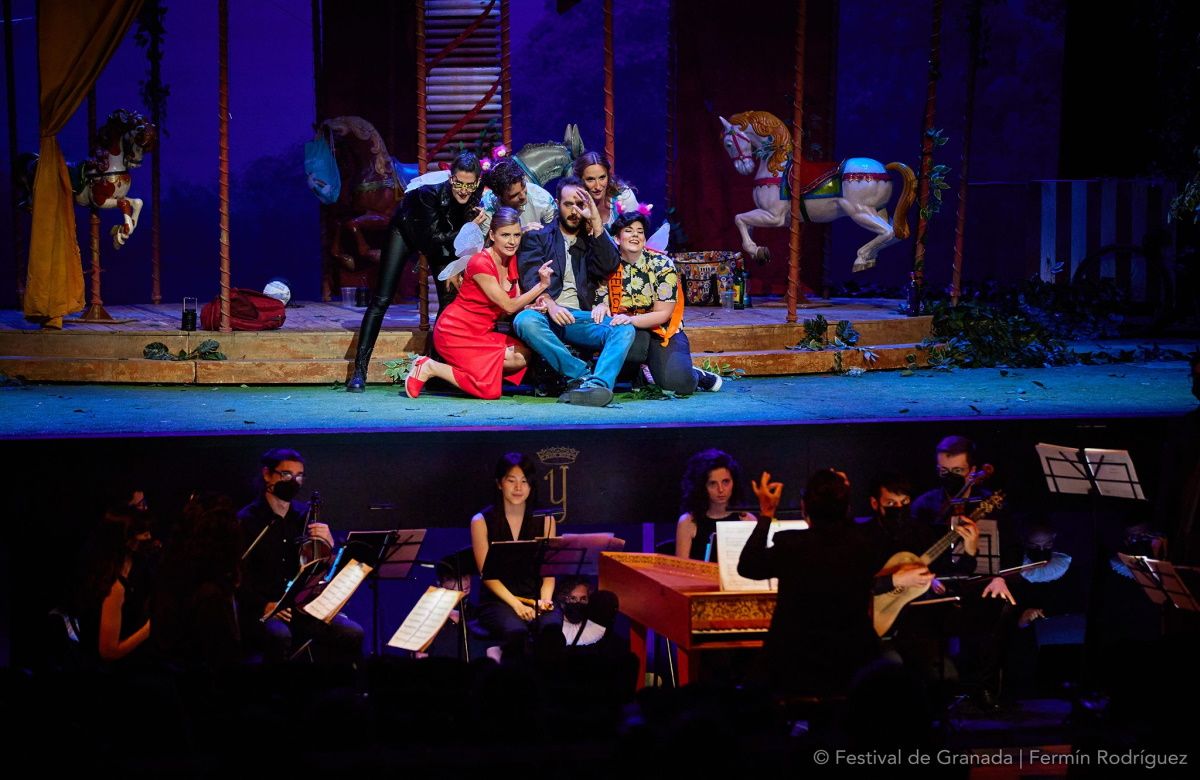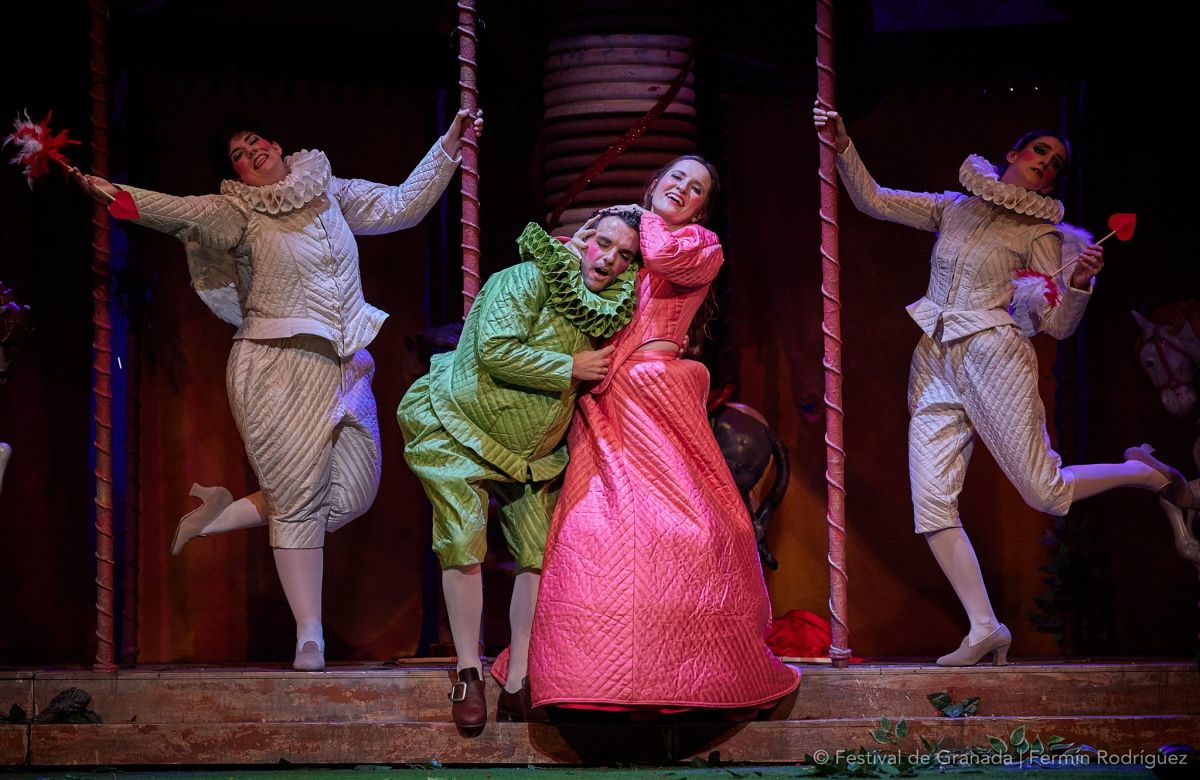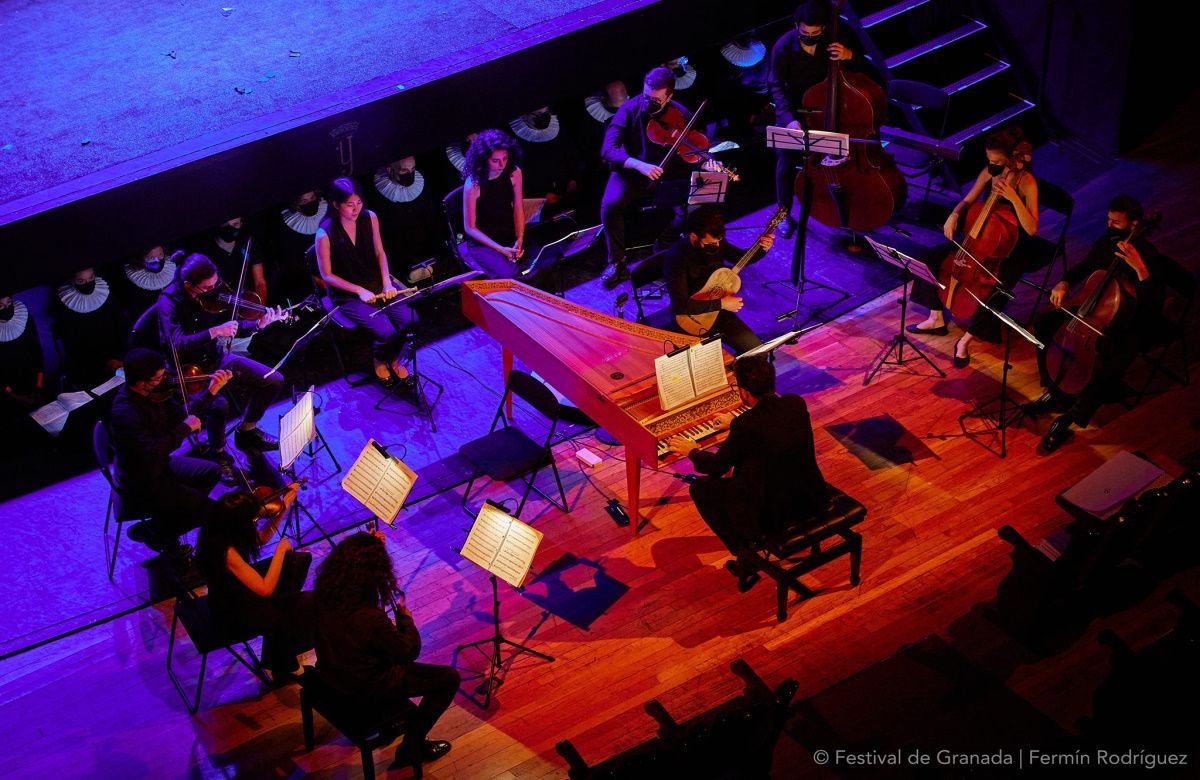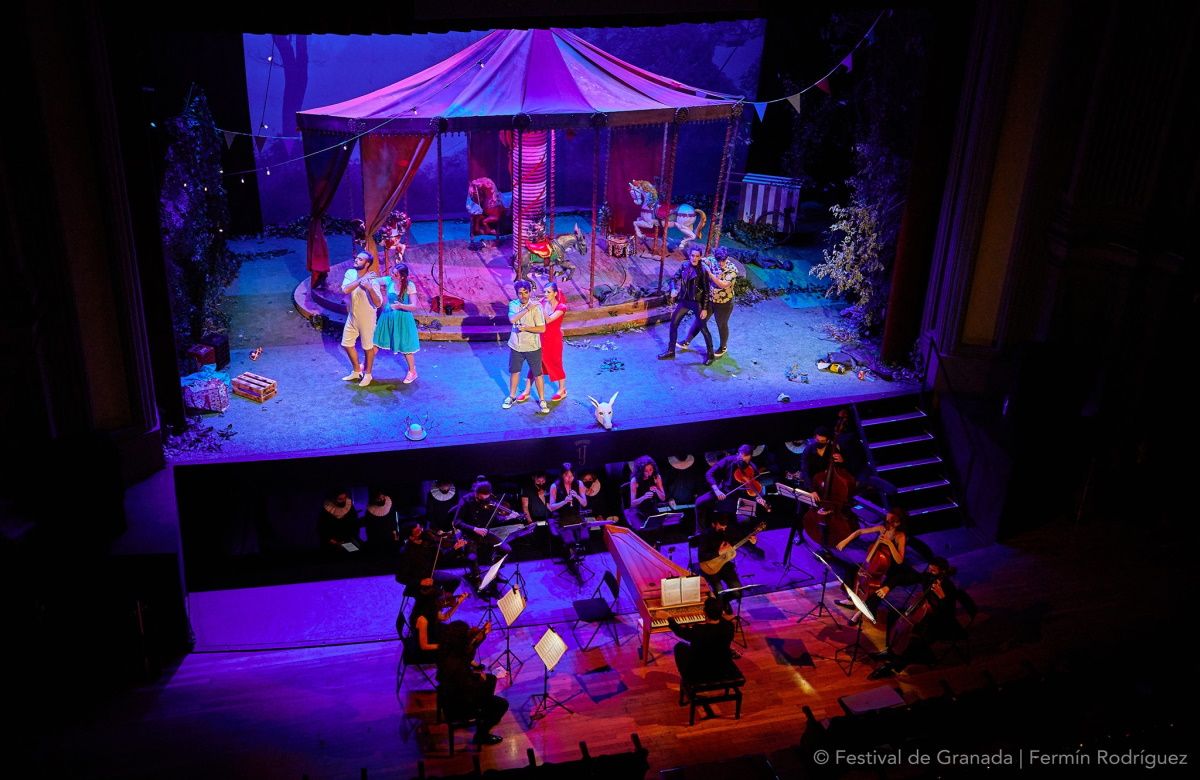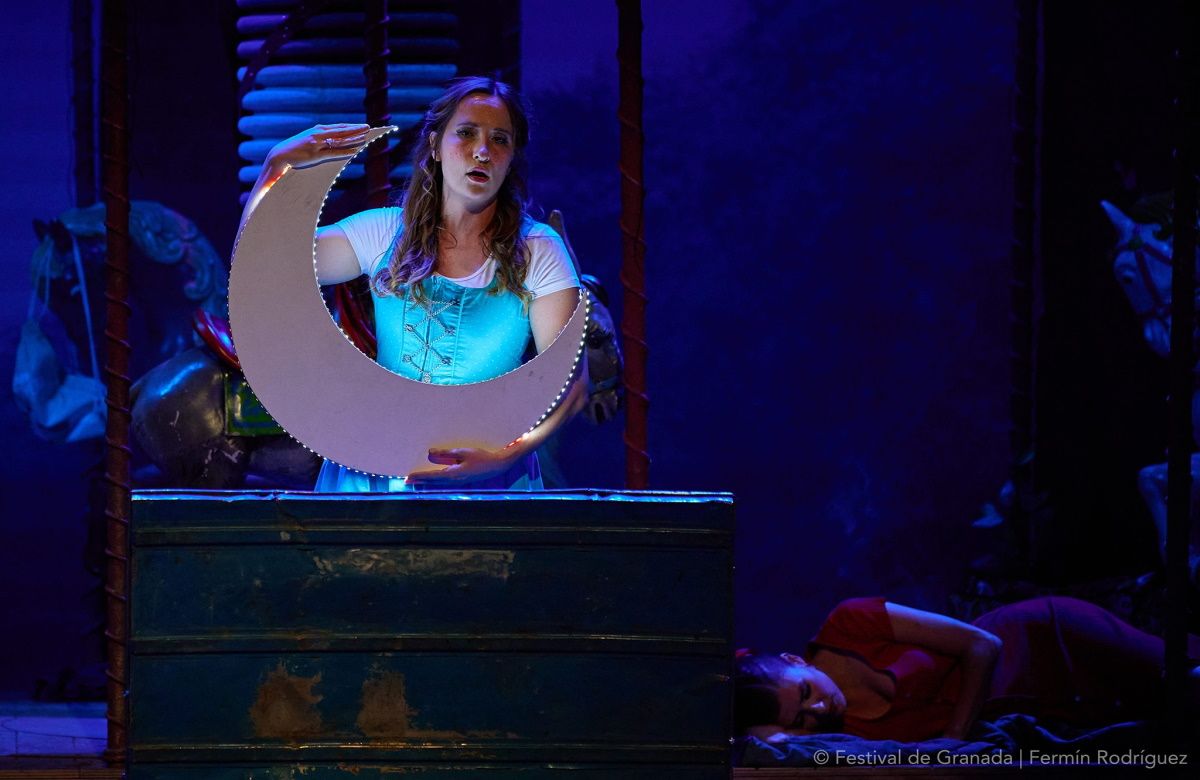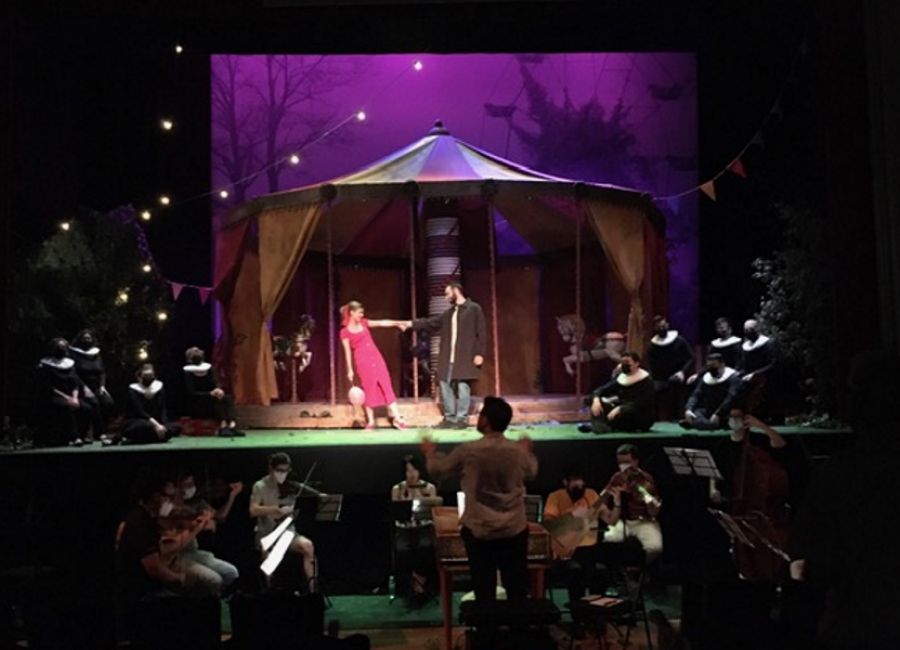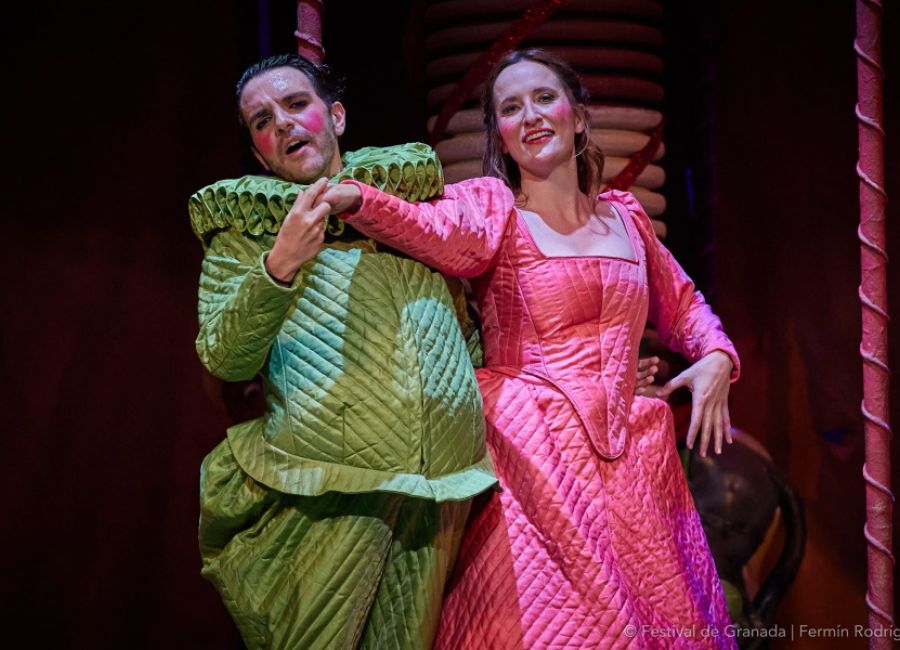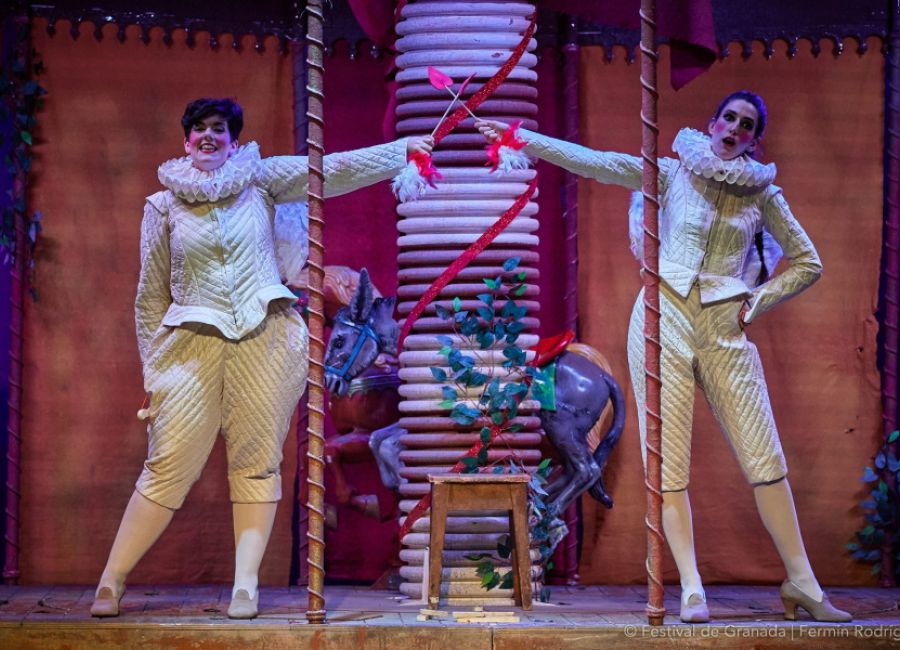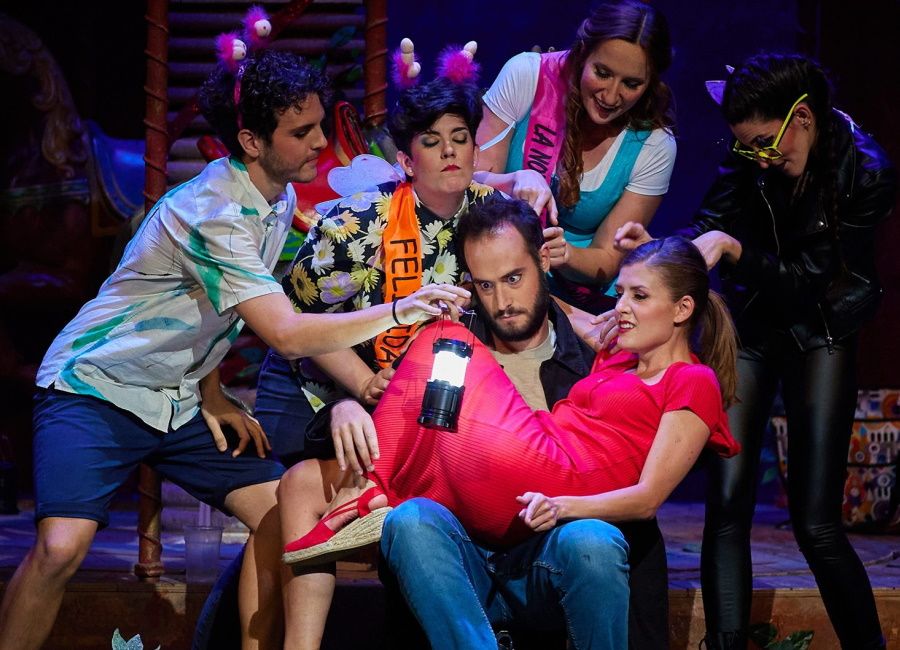The Fairy Queen
(Music by Henry Purcell
Libretto anonimous under "The midsummer night’s dream" by W. Shakespeare)
70 Festival de Granada Production
Accademy Barroque Festival de Granada (Spain)
Première July 1st 2021
The ópera “The Fairy Queen” basically is told the same story as in Shakespeare although the adaptation, made by an anonymous librettist (it is speculated that it may have been Dryden, a collaborating actor of Purcell) contains some differences.
The character of Hippolyta is not in Purcell, so the play that the comedians rehearse is not for the wedding of Hippolyta and Theseus but for the wedding of Hermia and Demetrius. Another fundamental difference is that Purcell ends his opera with Titania and Oberon and not with the character of Puck as in Shakespeare's play.
The present version is the result of a selection of numbers in which the soul of the Shakespearean play is preserved under a new dramaturgy. In this case, the characters will assume more than one dramatis personae existing in Shakespeare's work, finding a new meaning in each of them, to tell the fundamentals of this story that focuses on reflection about different human feelings.
Love, heartbreak, jealousy, disappointment come together in these reflections but also certain themes that are triggered from specific situations such as finitude, the passage of time, identity and the definition of the self through the other.Following Purcell, this montage begins with the celebration for the imminent wedding of Lisandro and Hermia. A group of young people, late at night, decide to continue the party in an abandoned place far from the city. This place is nothing more and nothing less than an amusement park in which apparently there is nothing but remains of garbage, a disused carousel, a ferris wheel in the distance, all covered by the vegetation sign of the passage of time and oblivion.
However, this apparently uninhabited place is full of presences that observe, comment on and intervene in the happening of history. The chorus will represent the plane of the supernatural assuming what the mischievous Robin Goodfellow or Puck undertakes in Shakespeare.
The couples Lisandro-Hermia and Elena-Demetrio, including their friends, will assume the different problems that are raised by the behavior of each of them. The dream, a "restorative" moment in which the vigilance of the conscious and the rational is suspended, will reveal the deepest desires where the world of reality and fantasy are confused. Everything can be perfect or turn into a nightmare, it depends on the decisions that each one makes. This will be the lesson.
Finally, while in Shakespeare the representation of the comedians becomes a reflection and criticism of the language of the theater itself, here the representation is a satire about love, marriage and married life, which, as in a distorted mirror, the protagonists themselves will be reflected laughing at themselves. The play ends with a great happy endi in which life, reconciliation and friendship are celebrated. It has already dawned and the day returns us to reality, without forgetting that it is in it where we can find the magic or the truly extraordinary of this life.
Gallery
Photography: Granada's Festival / Fermín Rodriguez
Critiques
 |


